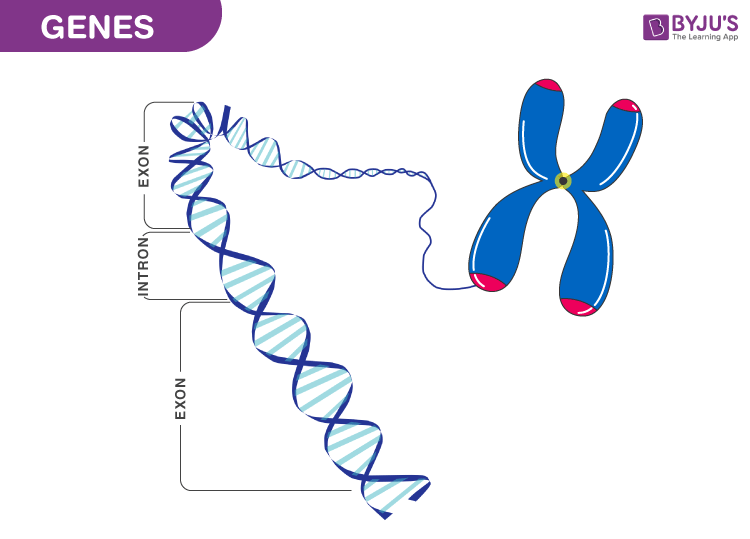Genetics is the branch of biology that deals with the study of heredity and its biological process. It also involves the study of genes, genomes and the cell cycle.
What is Genetics?
Genetics is termed as the study to understand the functioning of inheritance of traits from parents to offspring. The groundwork on which heredity stands is known as inheritance. It is defined as the procedure by which characteristics are handed down from one generation to the other. Gregor Johann Mendel is known as the “Father of Modern Genetics” for his discoveries on the basic principles of heredity.
Variation, as the name suggests is the amount of dissimilarity that exists between children and their parentages. It can be determined to keep in view the behaviouristic, cytological, physiological, and morphological characters of individuals fitting into similar species.
Some of the major reasons that variation are
- Genetic/Chromosomal rearrangement.
- Mutated genes due to the influence of the ecosystem.
- Crossing over.
Let us have a detailed look at genetics notes to learn about genes and the principle of inheritance.

Law of Inheritance by Gregor Mendel
Garden Pea (Pisum Sativum) was the plant that Mendel experimented on for 7 years to get to the point to propose the laws of inheritance in live creatures. Mendel carefully chose seven distinct characteristics of Pisum Sativum for the investigation concerning hybridization. Mendel used true-breeding lines i.e. those that go through constant self-pollination and display steady characteristic inheritance.
Also Read: Mendel’s Laws of Inheritance
Principles of Inheritance
When Mendel observed the monohybrid cross he proposed two laws of inheritance-
Law of Dominance – Distinct elements termed as factors control the characteristics. These factors at all times exist as a couple. One of the constituent genes of the couple dominates over the former.
Law of Segregation – Alleles don’t blend and the two characteristics are recuperated all through the gamete formation (in the F2 generation). The characters are apart from each other and pass on to diverse gametes. Comparable types of gametes are produced by Homozygous and Heterozygous produces diverse sorts of a gamete with varied characteristics.
Also Refer: Principles of Heredity
Incomplete Dominance
It is the discovery that was done after Mendel’s work. Incomplete dominance is the situation in which both the alleles do not display a dominant trait resulting in a fine combination or a midway amid the characteristics of the alleles.
Explore more: Incomplete dominance
Codominance
When two alleles lack the dominant-recessive association and thus the duo affects the creature together.
Law of Independent Assortment
The separation of one set of characteristics is autonomous of the other set of characters when they are pooled in a hybrid.
The Chromosomal Theory of Inheritance
Both genes and chromosomes exist in sets of two. The homologous chromosome contains the two alleles of a gene pair in the homologous sites. The coupling and split of a set of chromosomes will cause a split in the set of genes (factor) they carry. This united knowledge is termed the Chromosomal Theory of Inheritance.
Sex Determination
A particular nuclear arrangement was perceived by Henking. He perceived that this particular nuclear arrangement was found in only fifty per cent of sperms. He termed this body as x. Later, it was observed that the ova which only obtained the X chromosome matured and were born as females and those that didn’t receive only X chromosomes were born as males. Thus, the X- chromosome was termed a sex chromosome and the remaining ones were termed autosomes.
The occurrence due to which a modification in DNA happens and causes a variation in the phenotype and genotype of a creature is termed a Mutation.
Explore more: Determination Of Sex
Genetic Disorders
Disorders of a Mendelian nature include:
- Haemophilia.
- Sickle Cell Anaemia.
- Phenylketonuria.
Disorders of a chromosomal nature include:
- Down’s syndrome.
- Klinefelter’s Syndrome.
- Turners Syndrome.
Explore more: Chromosomal Abnormalities
Learn more in detail about Genetics, its importance, applications and other related topics at BYJU’S Biology

Very good